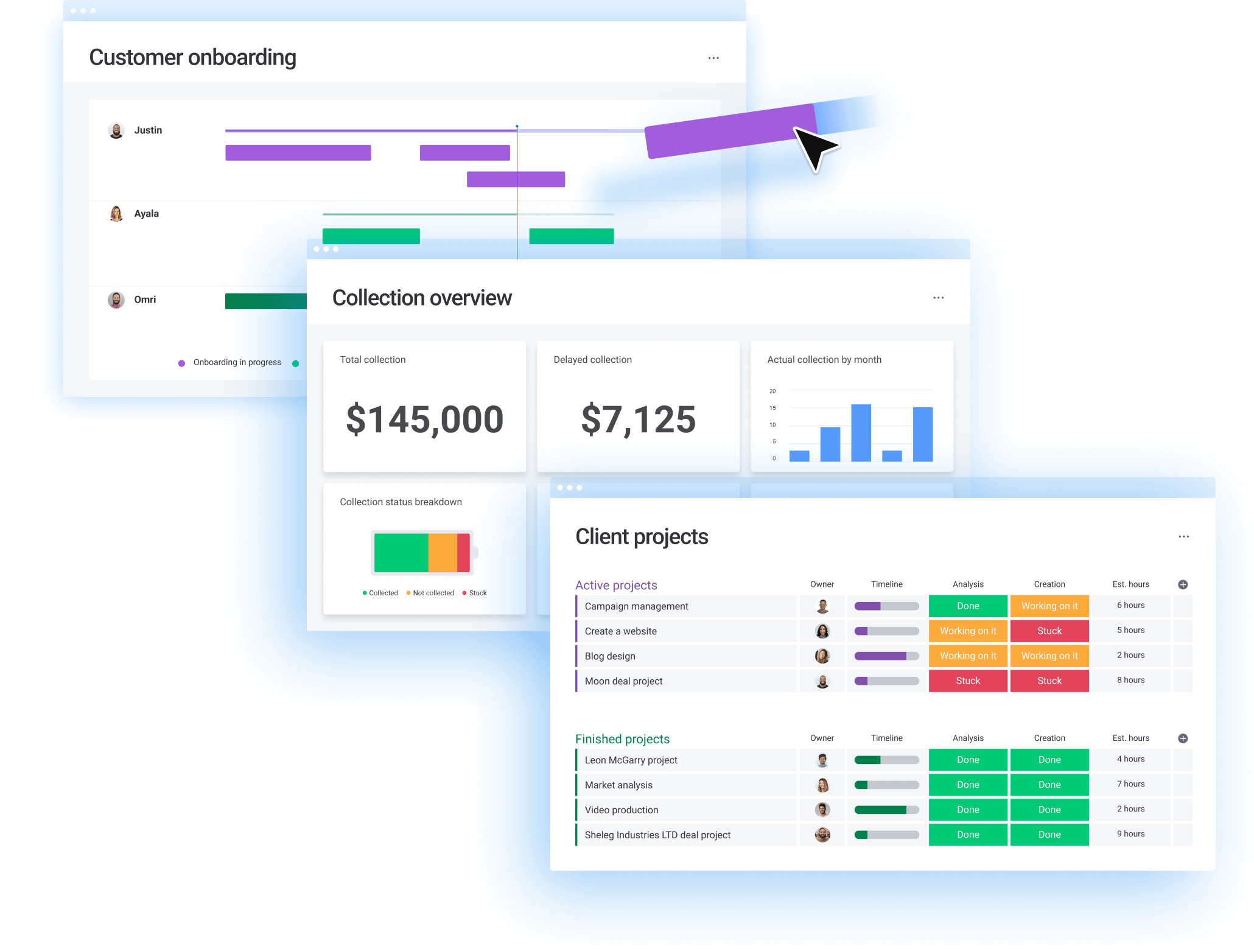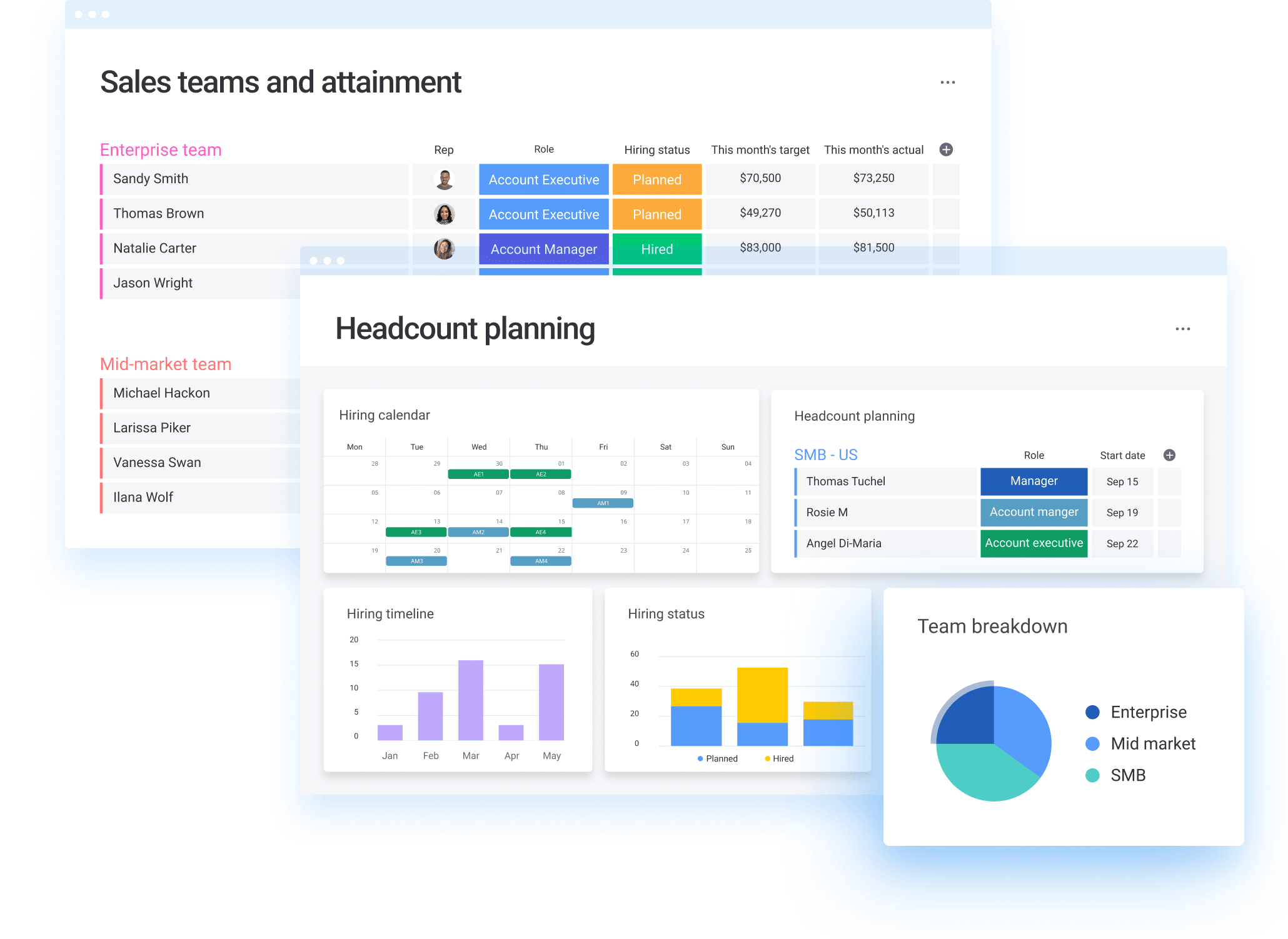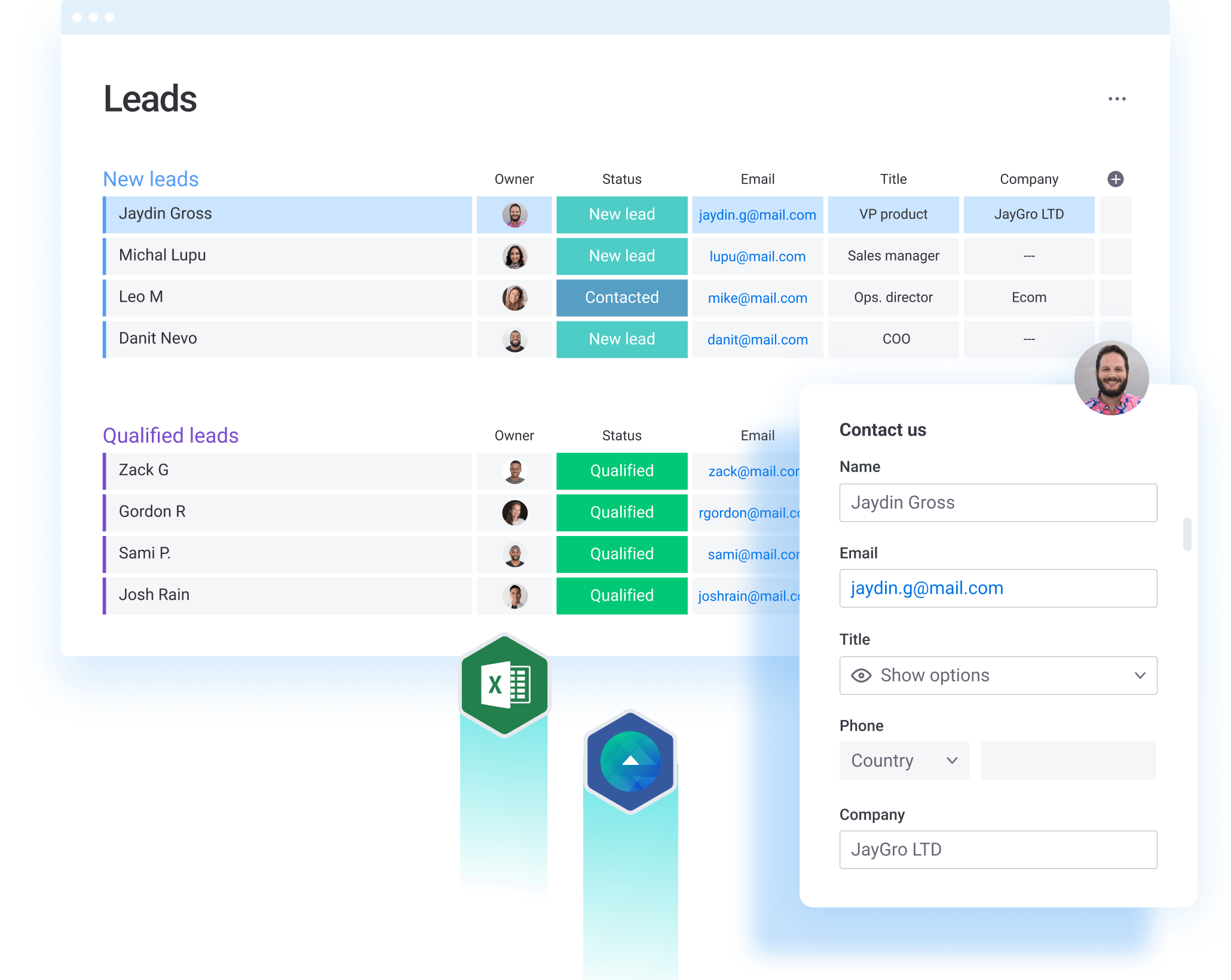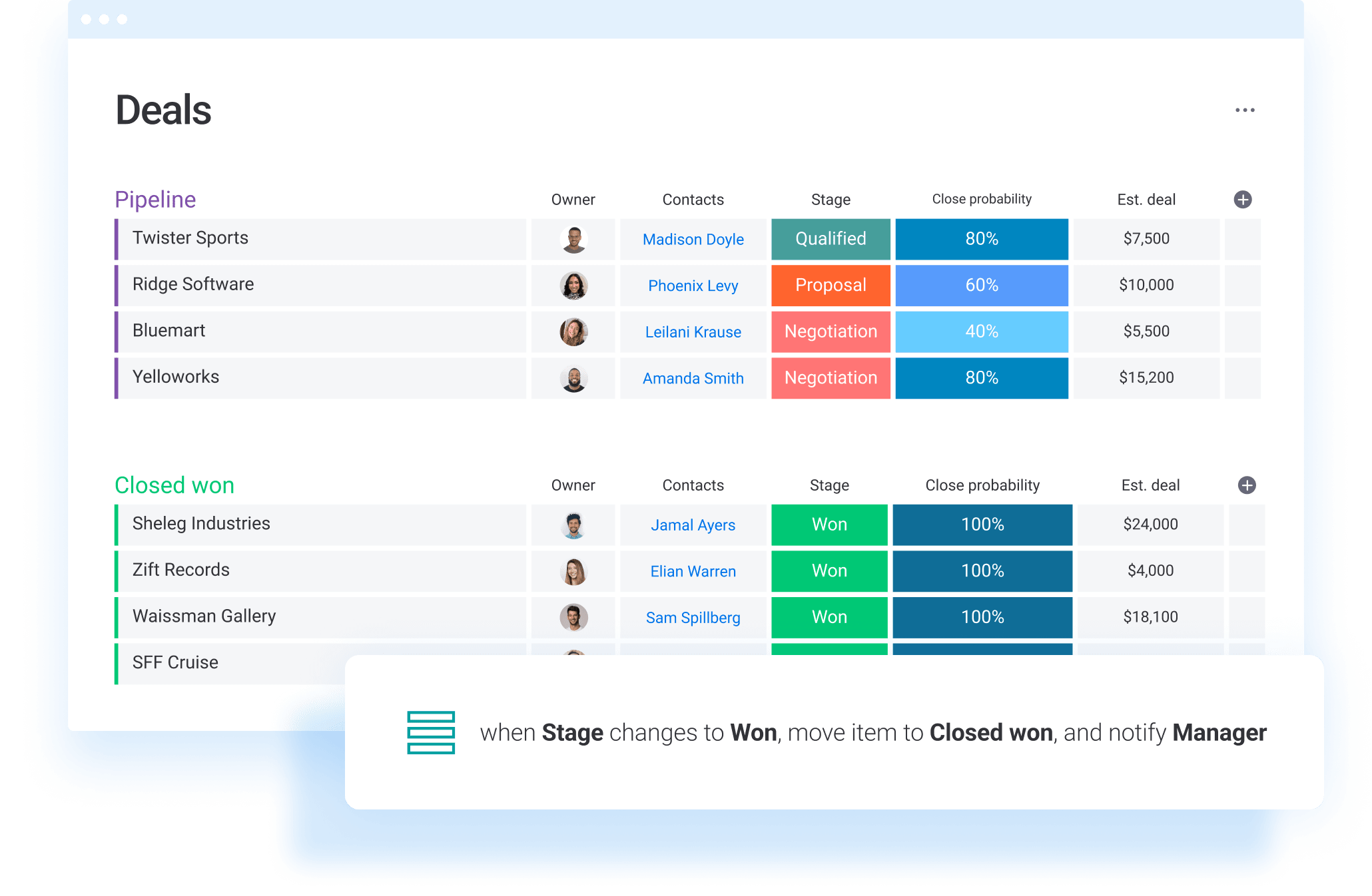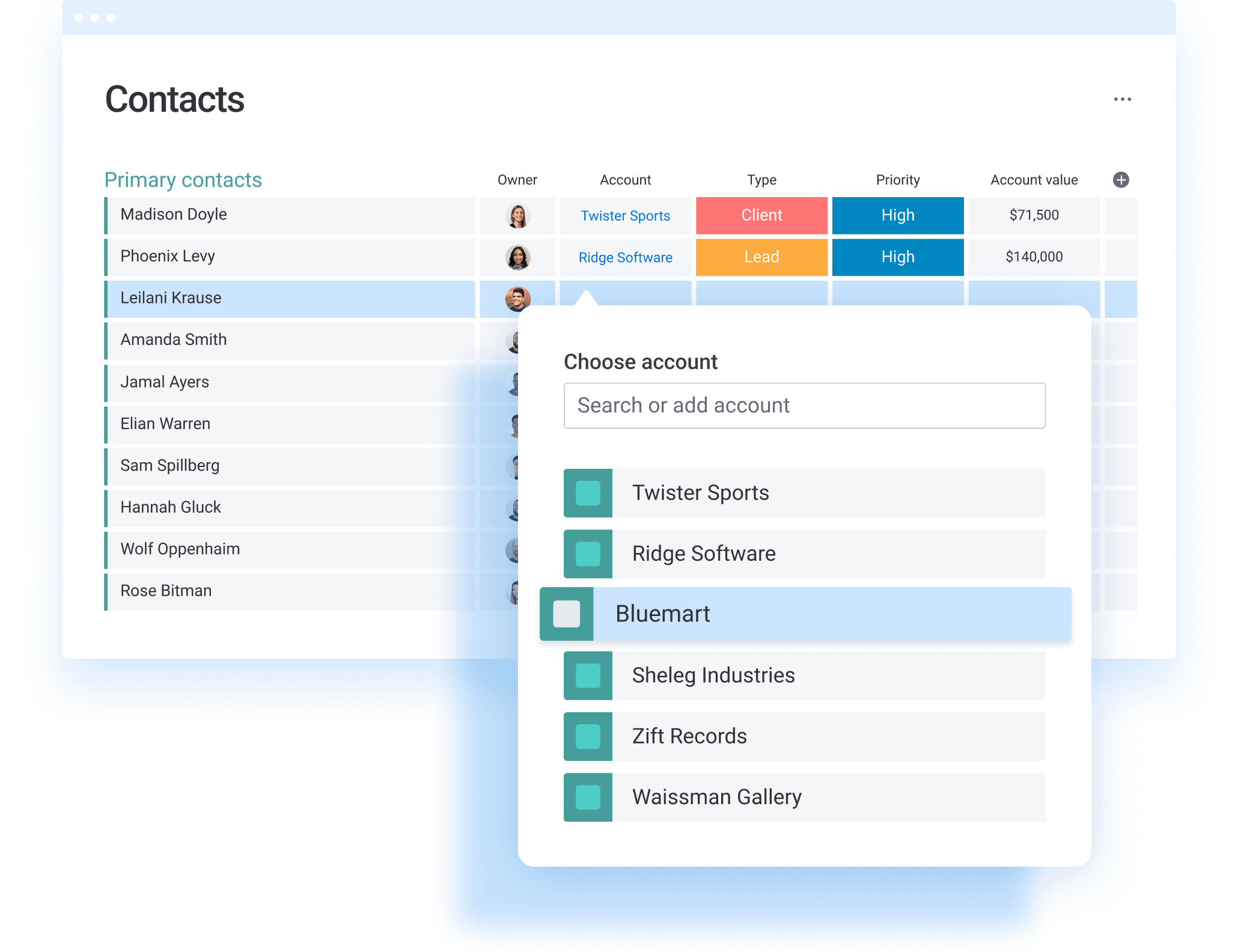The customizable CRM that's simple to set up and easy to use
monday.com lets you handle all your work in one place
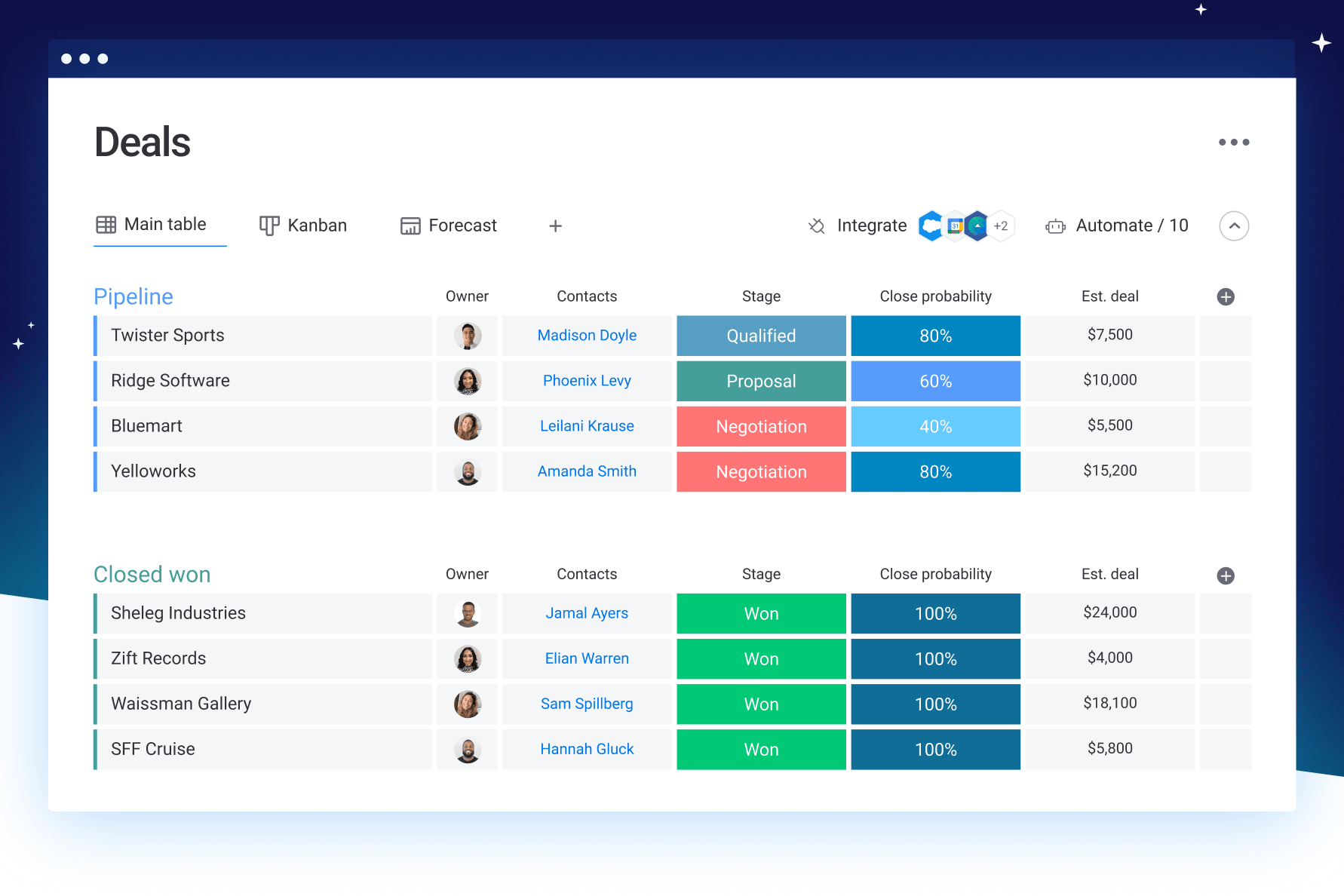

Gain visibility into your sales pipeline to boost productivity.
Flexible and intuitive
Customizable to fit your sales cycle
Easily tailor your CRM to work for you, without any development help. Edit deal stages, add as many columns as you'd like, manage multiple pipelines at once, and more.
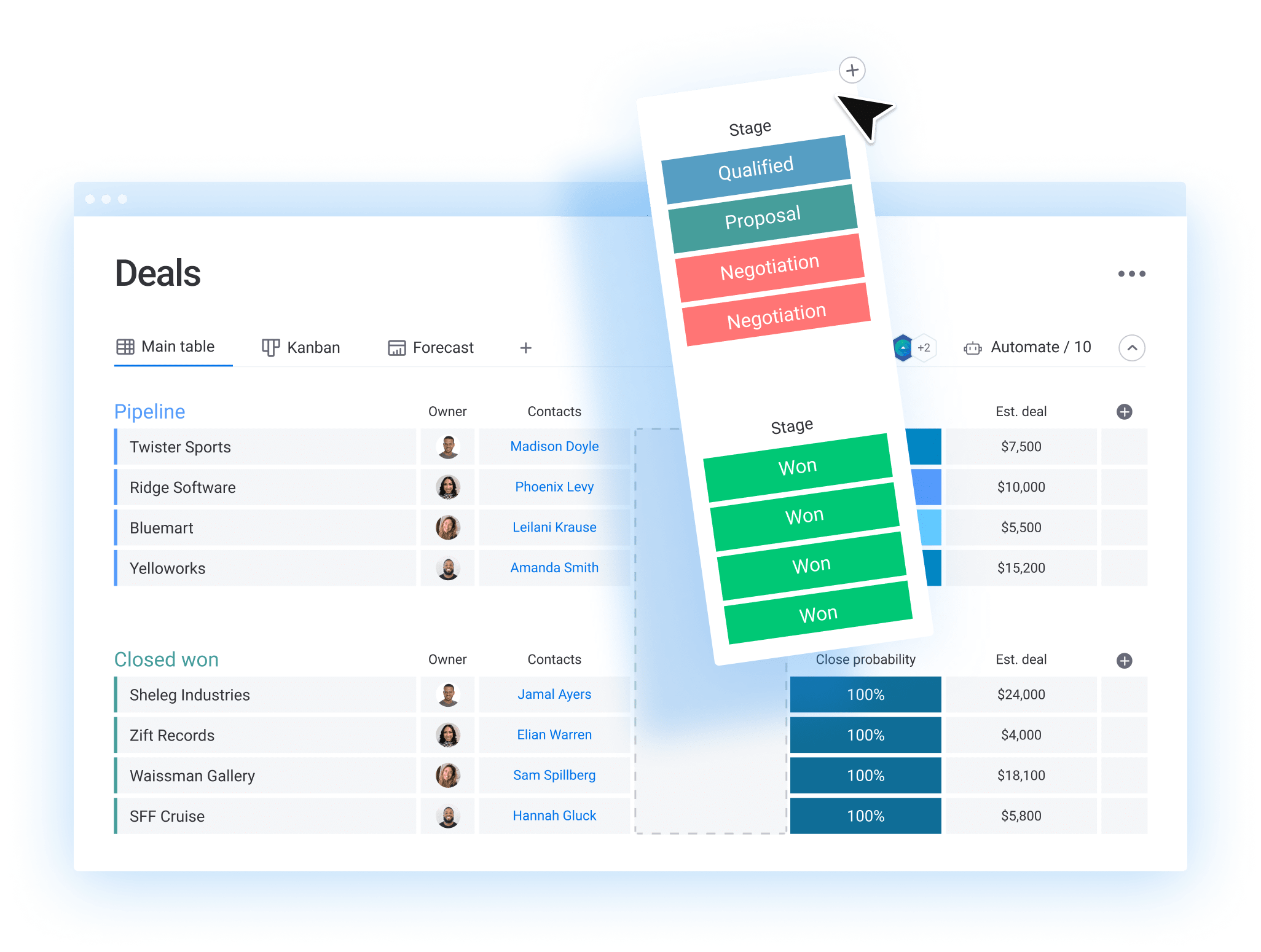
Emails & Activities
Centralize client communication
Communicate efficiently with your contacts by integrating your email. Automatically log sent emails, keep track of interactions, and use personalized email templates to save you time.
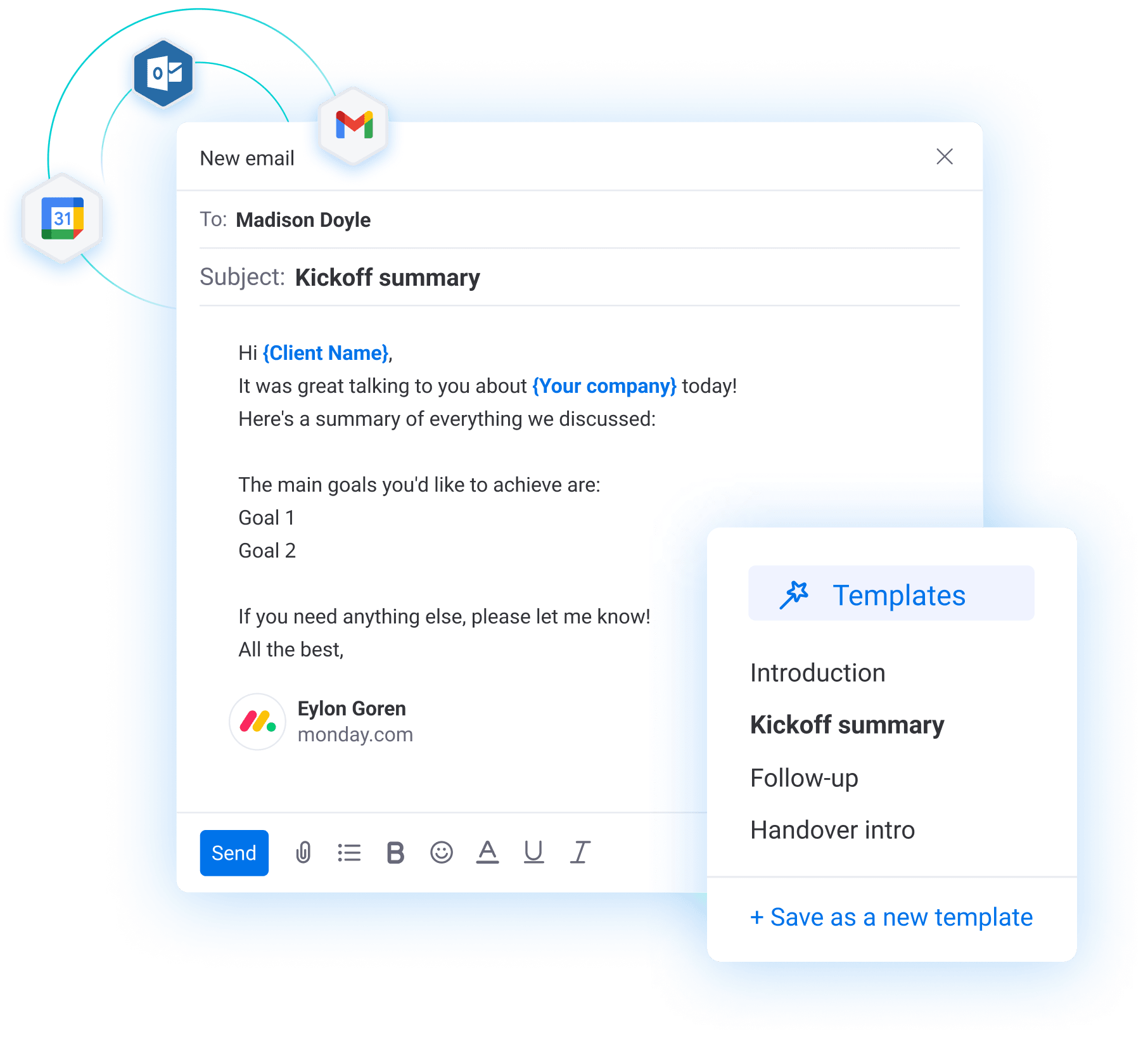
Automations
Save valuable time by automating sales processes
Close more deals by automating repetitive work. Automatically assign leads to reps, set reminders for upcoming activities, get notified when a lead opens an email, and more.
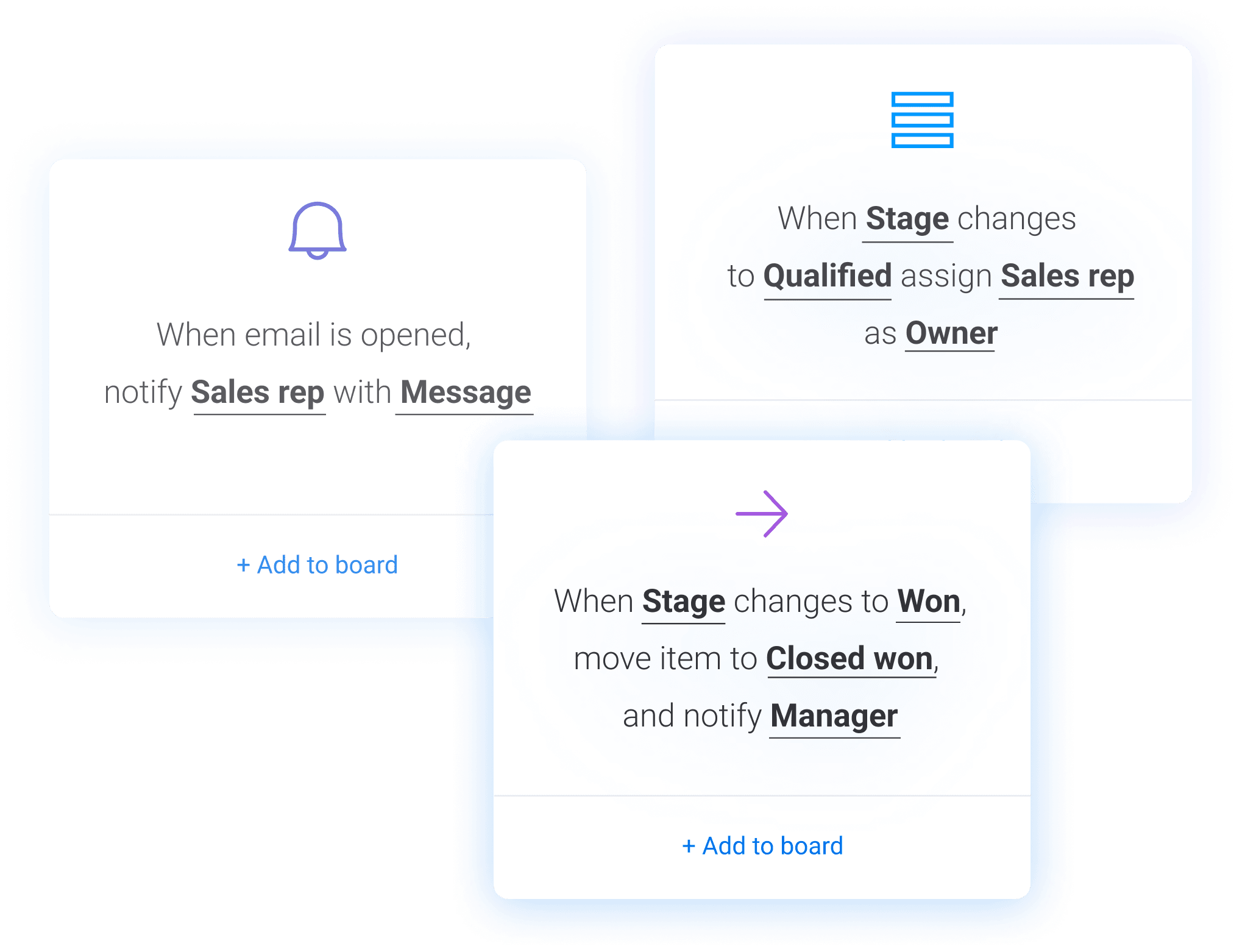
Get the full picture. From every single deal to the entire overview.
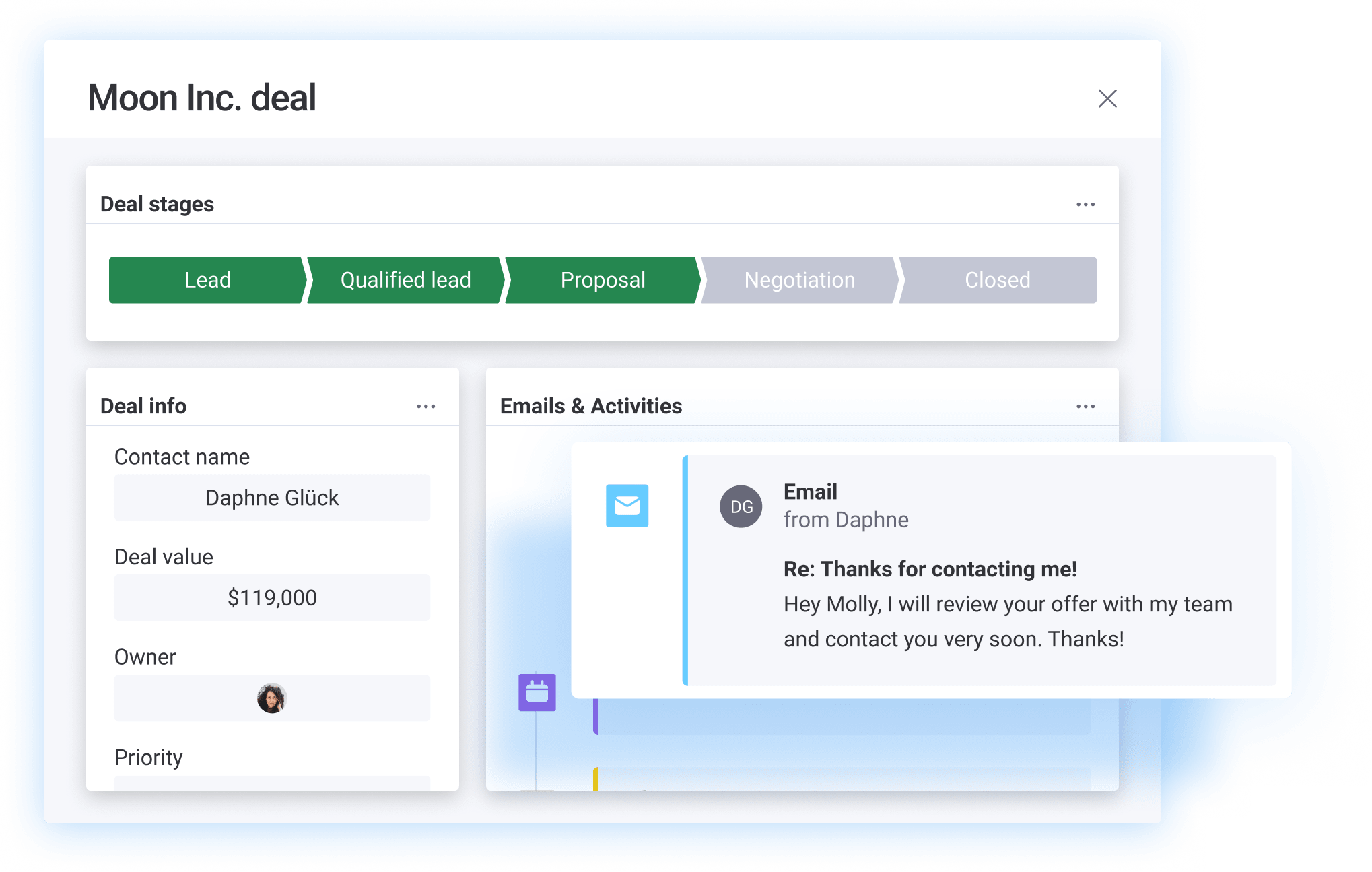
Get an instant overview
of each deal
With a single click, quickly access all the information you need to close deals. View contact details, understand deal progress, and what needs to be done next.
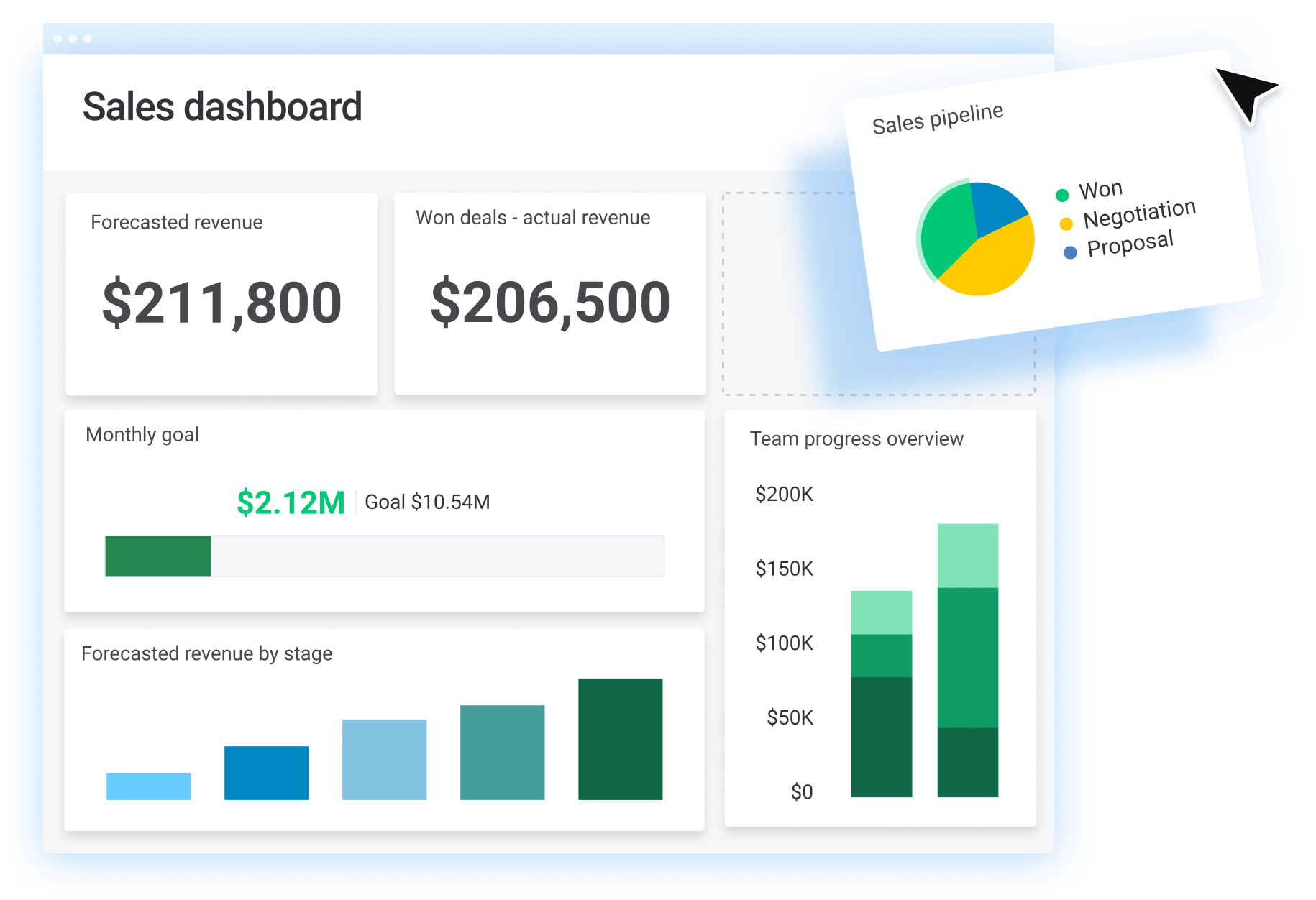
Increase visibility with customizable dashboards
Easily build dashboards in real time with no development help. Gain insights into where deals stand, expected revenue, your team’s performance, and more.
Features you'll love
Trusted by 245,000+ customers worldwide

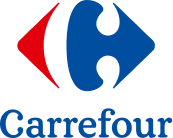







Pre-sales to post-sales all in one place
Based on 1000+ reviews on G2.com Crowd Reviews
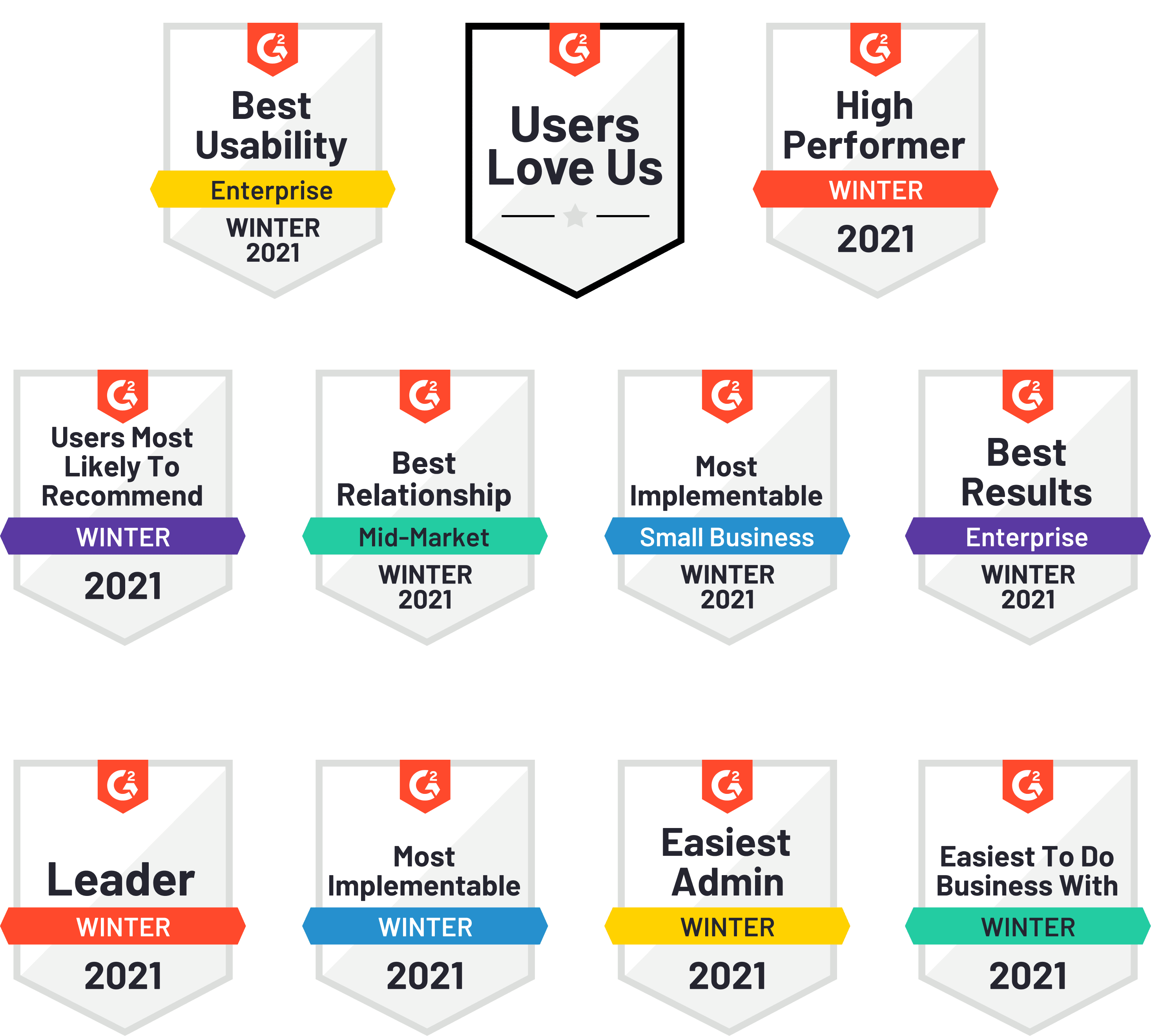
Frequently Asked Questions
- What is customer relationship management (CRM)?Customer Relationship Management is a platform that helps companies manage relationships and interactions with current and potential customers. A CRM software helps businesses improve customer relationships by connecting with customers, streamlining activities, and improving retention.
- What is a CRM used for?A CRM can be used to improve every part of the sales process, from pre- to post-sales. CRMs help companies build relationships with their customers by organizing all customer activity, interaction, and information in one place. This means that anyone on the sales team can understand exactly where a relationship stands.
CRMs also help companies optimize processes with automations that reduce manual tasks and keep work moving forward. Plus, integrations operate between the CRM and any external apps or platforms to make processes smoother and more centralized.
Data is also a central pillar for CRMs – they gather lots of data on the sales process, team members, the pipeline, and more. Then, anyone can display the data in many different ways to understand which areas are working well and which need improvement. This offers key insights into how to strengthen any company.
These are just a few of the ways to use a CRM but with a flexible and customizable CRM, the possibilities are endless. - Why use a CRM?A few reasons to use a customizable CRM include:
Manage lead nurturing - A CRM automates many parts of the process that are time consuming and prone to human error, such as notifying sales reps when they should reach out to prospects, track interactions, and present the customer's journey as a full picture, so reps can make informed decisions on their next move.
Boost in sales - A CRM helps teams create efficient sales processes, build sales pipelines, automate repetitive tasks, and parse sales data for insights that can increase closed deals. With a CRM, sales teams can create a reliable process to use for any deal.
Helpful analytics - CRMs don't only collect customer data, they analyze it and present actionable insights so sales teams can tweak and optimize their process as necessary.
Better customer service - CRMs manage a business's contacts and present important customer information—such as communications across all channels, purchase records, and more—to employees who need it. By easily accessing all relevant customer information, team members can provide a better customer experience. - What are the different types of CRM?The three types of CRM are Collaborative CRM, Analytical CRM, and Operational CRM. Each type is built for different needs.
Collaborative CRMs for instance, improve the customer experience by making customer information and communications across team members and external stakeholders—like suppliers and distributors— easier.
Analytical CRMs boost customer retention and acquisition by collecting data from different channels (contact lists, email, social media, and more) and making it accessible and actionable.
Lastly, Operational CRMs are built for generating leads and closing deals by automating the repetitive processes such as identifying prospects or forecasting sales. - What makes a good sales CRM?A good sales CRM helps you gain visibility into your sales pipeline, collects and qualifies leads from any source, allows you to customize your pipeline, provides a 360° view of your customers, and gives your sales team the tools they need to close deals.
- What's the difference between monday sales CRM and monday work management?These two products may seem interchangeable but, in fact, have some pretty big differences that can affect how efficiently you work. Find more detail on how they're different and which you should use here: monday sales crm vs monday work management
- How does a CRM help my business performance?A sales CRM helps businesses track and manage every aspect of their sales cycle, customer data, and communications in one place. For example, a CRM could integrate with email, helping teams communicate efficiently with customers.
- What makes monday sales CRM stand out from other CRM?monday sales CRM empowers you to streamline sales activities from pre- to post-sales, creating a comprehensive and frictionless sales cycle.
There are several key elements that set this sales CRM apart from others:
Companies can completely customize the look and feel of the platform with flexible column types, detailed subitems, customizable views, robust sorting capabilities, and more.
Extensive automations power processes, reducing time wasted on manual work and freeing up time for more relationship building and selling.
Comprehensive data visualization includes live reports and analytics using prebuilt dashboard and widgets for deep and meaningful insights. This also includes a Kanban view, timeline view, Gannt charts, and headcount planning features.
The low-code/no-code platform means that even non-tech savvy users can jump in and design their own workflows with the intuitive, visual and easy to use interface.













